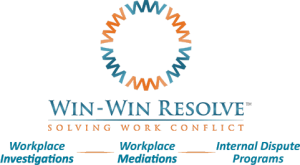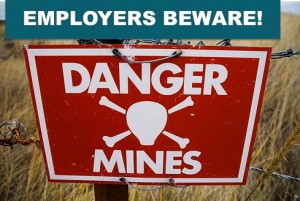Much will be written in the coming days about the Supreme Court’s ruling in the Hobby Lobby case.
Here’s my two cents: Justice Ginsburg got it right when she noted in her dissent that the Supreme Court has in this 5-4 decision “ventured into a minefield.”
Regardless of whether you agree with the ruling or not, I think we can all agree that this decision has created uncertainty for employers. That uncertainty will increase the cost of doing business in the U.S. as it will inevitably result in increased litigation.
Before this ruling, religious exemptions to federal laws were limited to organizations formed for a religious purpose and engaged primarily in carrying out that religious purpose and were not engaged substantially in the exchange of goods or services for money beyond nominal amounts.
Following this decision, courts will now be engaged in the business of evaluating the relative merits of an employer’s differing religious claims or the sincerity with which an asserted religious belief is held. It seems to me that this risk of the government endorsing any religious belief is exactly what the Establishment Clause was designed to preclude.
Consider the following hypothetical following the Hobby Lobby case:
Burger Joint is a privately held corporation 100% owned by a Jehovah Witness. The corporation operates 30,000 restaurants across the U.S. and employs 10,000 people. Following the Hobby Lobby decision, Burger Joint decides to exempt from its insurance coverage payment for any blood transfusions.
In explaining this decision to its employees, Burger Joint explains that its sole shareholder is a Jehovah Witness and has a sincerely held belief that the Bible prohibits ingesting blood and, as such, prohibits blood transfusions. Based on this sincerely held belief by the sole shareholder of Burger Joint the corporation will no longer be paying for blood transfusions under its health insurance coverage.
What do you think? Will Burger Joint’s exclusion of blood transfusions from coverage under its health insurance plans be deemed legal post the Hobby Lobby decision?
________________________________
 Win-Win Resolve (www.WinWinResolve.com) is a law firm focused on helping employers and corporate counsel manage workplace conflict early and internally in a cost-effective manner. It offers four primary alternative dispute resolution services to assist employers and corporate counsel: (1) Compliance Hotlines; (2) Internal Dispute Resolution Programs; (3) Impartial Workplace Investigations; and (4) Mediation.
Win-Win Resolve (www.WinWinResolve.com) is a law firm focused on helping employers and corporate counsel manage workplace conflict early and internally in a cost-effective manner. It offers four primary alternative dispute resolution services to assist employers and corporate counsel: (1) Compliance Hotlines; (2) Internal Dispute Resolution Programs; (3) Impartial Workplace Investigations; and (4) Mediation.

